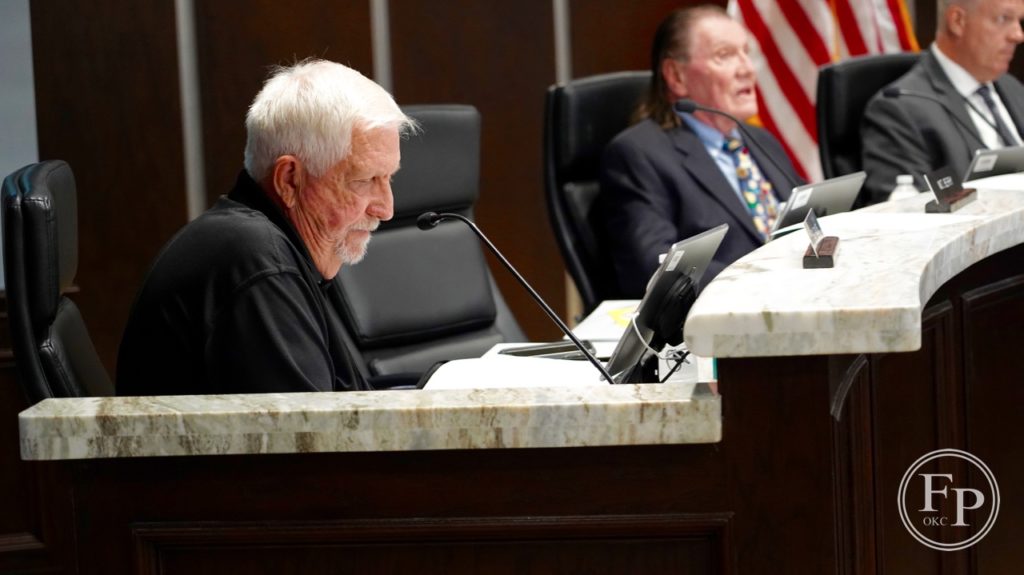A 16-year-old detainee at the Oklahoma County Jail completed suicide on May 1 after having made a previous attempt April 23.
District 1 County Commissioner Carrie Blumert and Sheriff P.D. Taylor then requested a review by the Oklahoma Commission on Children and Youth (OCCY).
The Director of OCCY, Annette Jacobi, told Free Press their review delivered to Taylor recently found that staff at the jail had followed all policies and procedures in place at the time.
But, as a part of the evaluation, they made recommendations for future procedures at the Jail.
Request for evaluation
Taylor asked Jacobi and OCCY to take a look at the existing policies and procedures to determine what changes might need to be made to keep detained youth safer.
Jacobi told us that several months prior to the suicide at the County Jail there was a suicide at Central Oklahoma Juvenile Center in Tecumseh prompting them to take a look at best practices in detaining youth.
When Sheriff Taylor asked for the organization to review jail policies, it seemed like an ideal launching point. OCCY could start by examining the county jail’s policies. From there, they could move on to examine policies for detaining youth statewide.
Task force formed
Jacobi formed the Detaining Juveniles Task Force to take on this effort.
The task force included 16 persons involved in juvenile mental health, juvenile justice, criminal justice, and criminal justice reform. Chosen as the chair of the Task Force was Dr. Ellen Harwell, an expert on juvenile antisocial and risk-taking behavior.
The group focused on five areas for review: placement of youth in the county jail, suicide prevention/precaution policies, training and supervision, facilities, and the Juvenile Justice Act of 2018 and the Prison Rape Elimination Act.
Youth placement
But, why detain juveniles in the county jail in the first place?
The Oklahoma County Juvenile Detention Center (OCJDC) has a number of detention pods, but separation of young people involved in gangs can sometimes stretch the resources available at the facility.
A juvenile may be held at OCJDC until it is determined that they will be tried as an adult. Young people implicated in cases such as First Degree Murder, First Degree Rape, or gang-related crimes may start their detention at the county jail rather than at the OCJDC.
“It’s much more complicated than you might think,” said Jacobi.
One requirement of detaining a juvenile in the county jail is that the child is required to be sight and sound separated from the adult population of the facility.
But, the Task Force recommends new Oklahoma statutes requiring all persons under 18 be taken first to OCJDC, and not ever start detention at the county jail.
Suicide Prevention
When studying Suicide Prevention policies, the Task Force saw that youth were not specifically addressed.
Furthermore, the policies required that a person in the jail on suicide watch at “Level II” must be placed in a suicide prevention gown. However, the policy didn’t specify what would be done for someone at “Level I,” which is a higher level of supervision.
Typically a person required to wear a suicide gown has no garments underneath in order to eliminate risk of self-strangulation.
But, current policy at the county jail did not address undergarments for youth, nor did policy address what actions staff are prohibited or allowed to take if a youth refused to wear the suicide gown.
The Task Force now recommends that the Sheriff’s office revise suicide prevention policies to address juveniles specifically, expressly addressing policies to determine when and how the suicide gown will be utilized and who can order its use, and to prohibit the forcible removal of clothing in order to place a youth in the suicide gown.
De facto solitary confinement
As it stands now, if there is only one juvenile of a gender, they are kept separate by themselves because of the “sight and sound” separation rule.
When they are the only child incarcerated, this becomes de facto solitary confinement, which has been proven to create trauma especially among persons under 25.
The law also requires “separate juvenile and adult staff, specifically direct care staff such as recreation, education, and counseling.”
Currently, the county jail does not seem to have staff who are specifically trained to work with juveniles.
The Task Force recommends that the jail develop policy and protocol to serve any youth who may be the sole juvenile resident in order to minimize the impact of isolation, as well as developing specialized training for working with juveniles in detention.
Additionally, the Task Force suggests providing a no-cost means of allowing a youth to contact family and service providers by phone or video at no cost in order to minimize the isolating effects of incarceration.
Evaluation Delivered
OCCY recently delivered the evaluation with recommendations to Taylor.
Free Press asked for comment from the Sheriff’s office.
“The commission made some great recommendations that we will consider,” said Mark Meyers, Public Information Officer for the Sheriff’s office.
“Obviously, implementation is another issue as the Trust is expected to take over operations within the next few months. Some of the recommendations would require statute changes at the state legislature,” said Meyers.

Compliance Deadline
The requirements of the Juvenile Justice Act of 2018 come with a compliance deadline of 2021.
But, the Task Force is offering guidelines that will put Taylor’s policies at the jail in place ahead of the deadline.
“Some of our recommendations are somewhat aspirational,” said Jacobi. Pursuing the changes now will prevent having to play “catch-up” in a year and a half.
These are the first steps for this Task Force.
In the future, there are plans to review policies about detaining juveniles statewide.
Jacobi pointed out that the differences in detaining juveniles in urban areas and rural areas create many unique challenges. The Task Force assembled is one that should be able to thoughtfully address those issues.
Columnist covering local government in Oklahoma City and Oklahoma County from May 2019 through June 2023.










